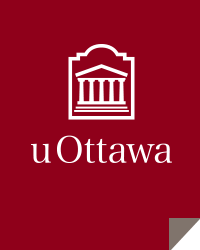“It helped me with the business acumen I was looking for”
What were you doing before you enrolled in the MHA program at the University of Ottawa?
My background is as a physician. I trained in the UK and joined the Northern Ontario School of Medicine, Thunder Bay after moving to Canada. While going through the residency requirements to train as a physician, one of the options that stood out for me was health administration, which is how I ended up at uOTT.
Why did you choose the University of Ottawa?
It was a big career change for me, so I wanted to choose a program that was MBA-embedded. This program could be completed in 16 months and, as I was staying away from home, it allowed me to choose a more intensive program.
“Being job ready at graduation made a difference”
What attracted you to the MHA program?
First of all, I wanted to build my business acumen, so the MHA program stood out for me. Being job ready at graduation also made a difference, and the student testimonials showed that. I was connected with a student, who had a similar background. After interacting with her and the successful career she made out of the MHA program, I decided that this was the one for me. I would like to say a big ‘thank you’ to Brian Malcolmson, past Residency Program Director at Telfer, who set me on the MHA path.
“It wasn’t a daunting process and I really enjoyed it”
What was your perception of a Master’s degree before you inquired about uOTT? Has that changed after you enrolled in the program?
I am a lifelong learner, thanks to my background as a physician, where one is constantly on a ‘continuous learning mode’. I knew the Masters program would be intensive and I was ready to face it. After I started, I knew this was for me within the first six weeks. Looking at the diversity and skill mix of the students and the different perspectives that they brought to the program, made it very appealing. The courses I did were quite good. It wasn’t a daunting process and I really enjoyed it. It was completely different from my clinical training, something I thoroughly enjoyed.
What has been your favorite class so far and why?
I had favourites for both the MHA as well as the MBA. With regards to the MBA, I really enjoyed classes on leadership, management skills, performance management and statistics. When you’re a physician in training, you get so focused that you don’t see the big picture. These courses improve critical thinking, and the way you strategize thought processes. It was all aligned well. For the MHA, I enjoyed the introduction to healthcare, health economics, quality in health systems, and epidemiology for the same reasons.
Have there been any skills you’ve learned in the program that you have had the opportunity to use at work?
I use a lot of learnings from the MBA performance management course such as logic model, strategy map and balanced scorecard. I got really interested in quality improvement tools, which is something I specialised in. From the strategy and change management course, I use Kotter's model and Lewin's theory of change in a lot of projects.
What are some advantages of pursuing a degree at uOTT?
The Telfer School of Management has its own reputation, nationally and internationally. When I look at it from an accreditation lens, it is one of the few business schools in Canada that is triple accredited. Student testimonials have a lot of positive things to say in terms of the advantages of studying at Telfer. When I did my residency at Health Quality Ontario, my project was referred to as the ‘Telfer Standard’, which is a testament to how they value the quality of the MHA program.
“I landed a job within three months of completing the program”
How has the University helped you in your career? Can you share a specific example of how it helped, or could help, you succeed in a current or future role?
It helped me with the business acumen I was looking for, blending clinical with business skills. I landed a job within three months of completing the program and moved up in my career to a manager position last year. When coming from a different background; critical thinking, strategic approach, and being confident, all allows one to enter into a new job market. Telfer introduced me to the Certified Health Executive program, which I attained 2 years ago. We also had great speakers at the school, like Wendy Nickin, past president of Accreditation Canada and ISQua (International Society of Quality in Healthcare), who got me highly interested in quality. One thing led to another, and I attained the Fellowship of ISQua (International Society for Quality in Healthcare), which I am really proud of.



